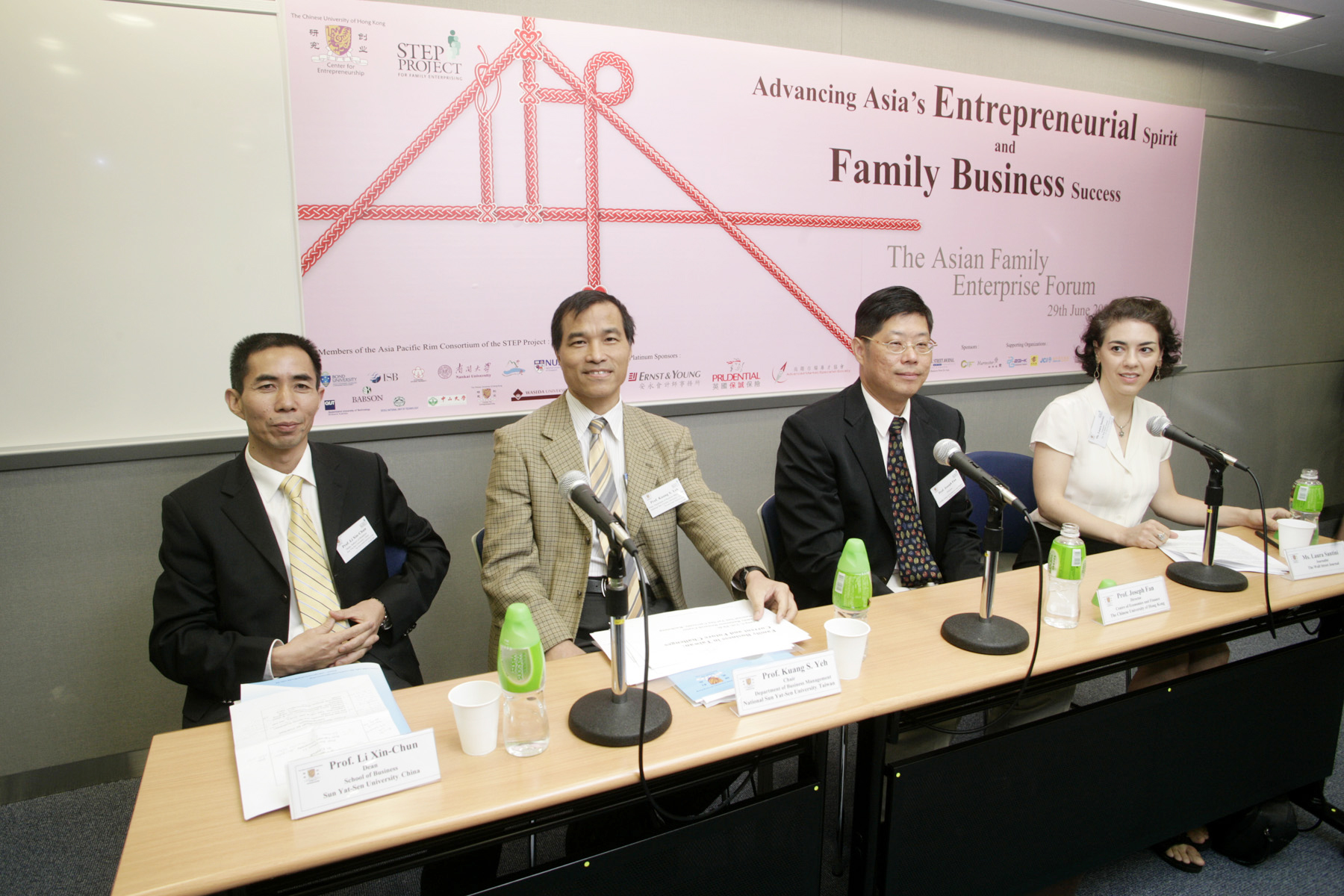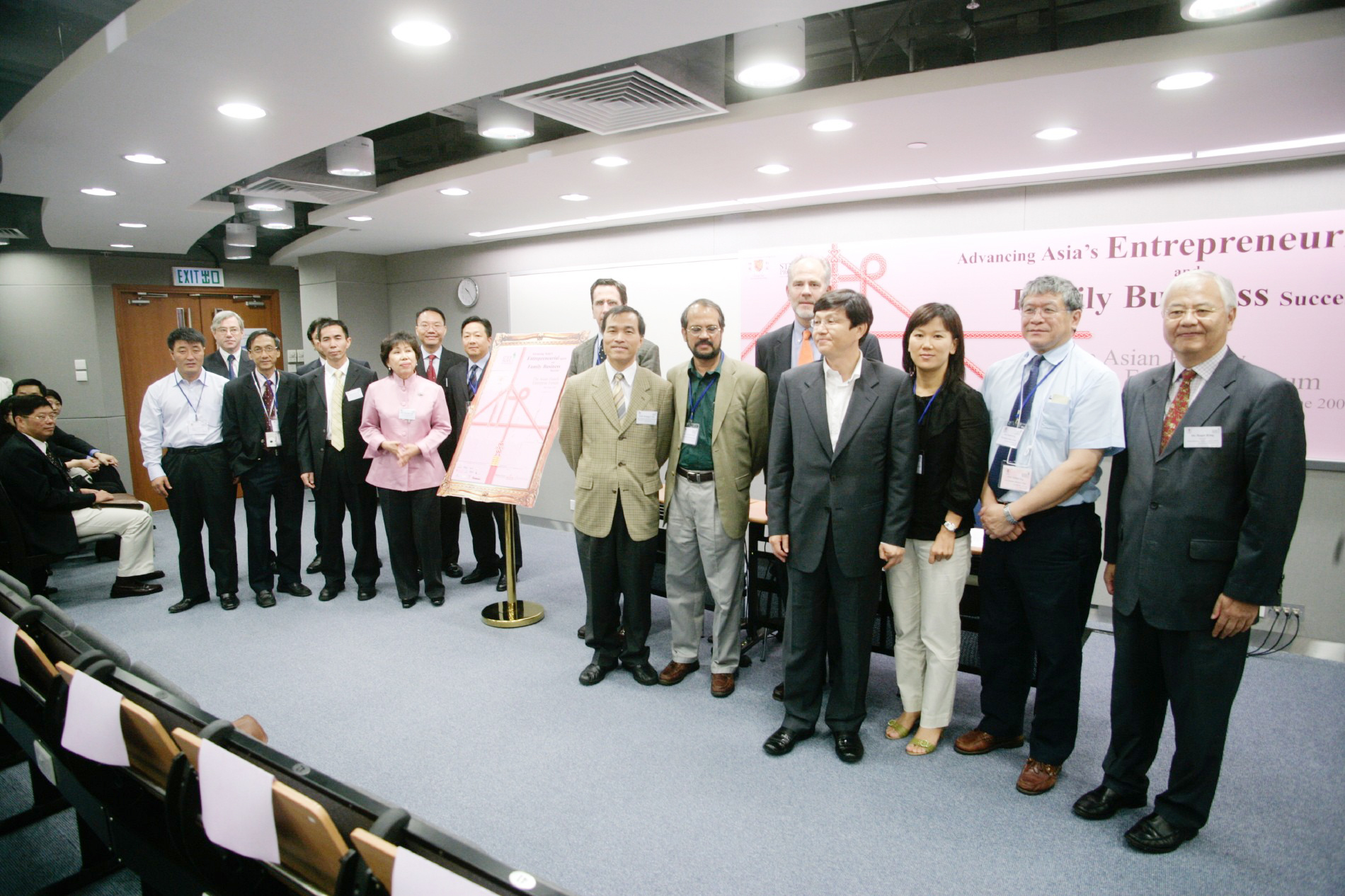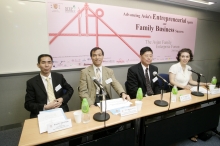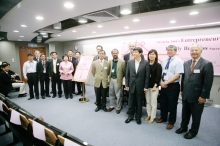CUHK
News Centre
CUHK Spearheads Asian Family Enterprise StudiesContinues the Growth Momentum of Family Business in the Region
According to the study of The Institute for Family Enterprising at Babson College in Massachusetts, in the United States and some European countries like Germany and Spain, 90% of the businesses, including publicly and privately held, are in the hands of families. Other studies showed that families also control more that 60% of publicly traded companies in Asian cities like Hong Kong, Indonesia, Malaysia and Thailand. These overwhelming percentages imply that success of family businesses has been playing a crucial role in the world economy.
In view of the uniqueness of the success behind individual family firm and the increasing call for globalization, many family business successors find themselves facing great challenges in striving for sustainability and further growth of their firms.
With a vision to promote research and resources for family firms, the Center for Entrepreneurship of the Chinese University of Hong Kong (CUHK) has spearheaded research efforts on this area through the set-up of the Asia-Pacific Rim Consortium of the STEP (Successful Transgenerational Entrepreneurship Practices) Project – a global initiative to study best practices of family business worldwide. The “Asian Family Enterprise Forum” held today is the first of the series of plans initiated by the new consortium.
Speaking at a panel of the Forum, Prof. Joseph Fan, Faculty of Business Administration, CUHK, pointed out that succession of family business always bear cost, “It’s easy to pass hard assets, but hard to transfer reputation and connections. Successful transition requires both the old and the new generation’s effort to professionalize while preserving the core value of the business, and do it early rather than late.” Prof. Fan’s study also suggested that the secrets of success for the second generation required a number of steps to quickly shore up trust and confidence in the new leadership. Such steps include setting up a board of directors credible to stakeholders, more transparency and higher dividend payments to shareholders. Moreover, it is important for the second generation leader to have a significant individual concentration of ownership so that they will bear a high cost of any wrong decision.
The STEP Project, which is founded by the Institute of Family Enterprising at Babson College, is a global research network of over 40 universities. It has been worked with family businesses in Europe, North America as well as Latin America to better understand the special needs of this dynamic part of the world economy.
At the inauguration ceremony of the Asia Pacific STEP Consortium, Prof. Ching Pak Chung, Pro-Vice-Chancellor, CUHK said, “The University is much delighted to have the honour to take the lead in setting up the Asia-Pacific Rim of this meaningful Project. I believe many people may have certain awareness on the role of family business, but we may not aware that our economy is so significantly interwoven with the success of these family firms. This is an interesting and weighty subject, which certainly worth more consolidated efforts.”
In sharing about the vision of the Asia Pacific Rim of STEP, Prof. Kevin Au said, “We want to create a systematic framework and alliance among Asia-Pacific universities to investigate issues related to family businesses, and help enhance entrepreneurship and leadership skills from generation to generation. And we are glad to have successfully invited other ten renowned universities in the region to join the consortium. Today’s forum is our first initiative to get together all concerned parties like family business members or executives, consortium members as well as related players in the financial industry to share their views on various issues which are pivotal to the survival and further development of family business. ”
The twelve member universities of the Asia-Pacific Rim Consortium of STEP are : Bond University (Australia), Queensland University of Techonology (Australia), National University of Singapore, Indian School of Business, Sun Yat-sen University (Chinese Mainland), Nankai University (Chinese Mainland), National Sun Yat-sen University (Taiwan), Waseda University (Japan), Seoul National University of Technology (Korea), Kyungpook National University (Korea), Babson College (USA) and the Chinese University of Hong Kong.
A panel discussion on “Family Businesses in Asia: Research Findings & Lessons” featuring Prof. Li Xin-Chun of Sun Yat-Sen University in China, Prof. Kuang S. Yeh from National Sun Yat-Sen University in Taiwan, Prof. Joseph Fan from CUHK and the moderator Ms. Laura Santini from The Wall Street Journal (from left).
CUHK’s Center for Entrepreneurship has spearheaded the set-up of the Asia-Pacific Rim Consortium of the STEP (Successful Transgenerational Entrepreneurship Practices) Project – a global initiative to promote research and resources for family firms and to study best practices of family business worldwide.







